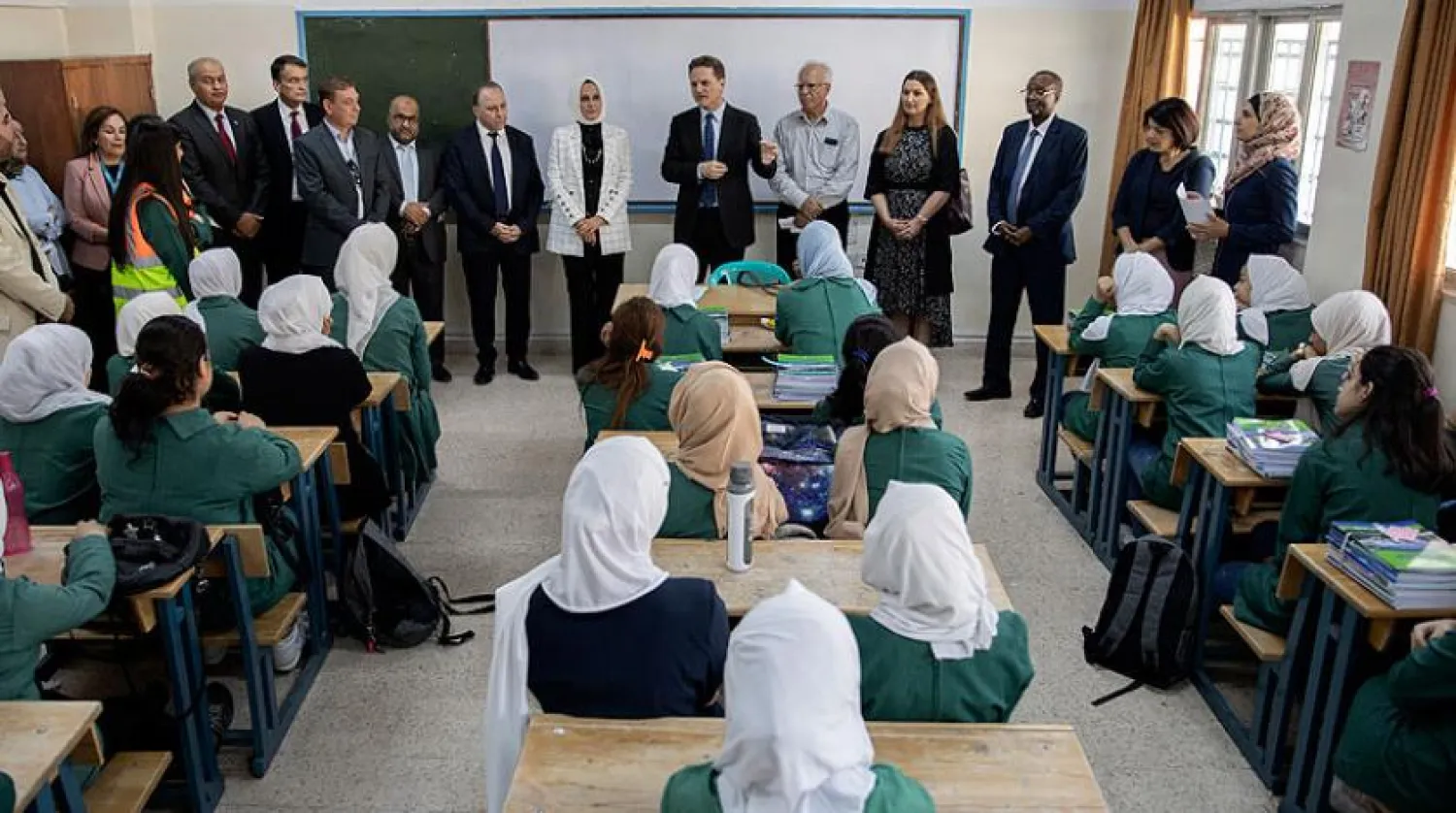An emergency meeting was held Tuesday at the Arab League’s headquarters to discuss renewing the United Nations Relief and Works Agency for Palestine Refugees in the Near East’s (UNRWA) mandate and its financial crisis.
Supervisors of Palestinian Affairs in Arab Host Countries’ conference has called for mobilizing Arab support to ensure that UNRWA continues to carry out its tasks. Attendees discussed means of supporting the renewal of UNRWA's mandate for the next three years.
This comes in line with the Palestinian Liberation Organization's (PLO) plan of action to support the renewal of the agency’s mandate as the voting process approaches in light of the US-Israeli effort to cancel or change the mandate.
The emergency meeting condemned “the targeting and suspicion campaign against UNRWA, especially by the US administration, and rejected any manipulation in defining the Palestinian refugees’ status.”
It called on the Arab League’s General Secretariat, its missions abroad and the Arab ambassadors’ councils to continue their efforts in activating diplomatic and political channels of communication with world countries to urge them to vote in favor of renewing the agency’s mandate.
It also called on Switzerland, the Netherlands and Belgium to cancel their decisions to postpone their financial support to UNRWA, demanding the three countries not to link allegations of corruption cases that have not yet been proven with stopping or suspending financial aid to the UN agency.
In addition, the meeting stressed strengthening the monitoring, accounting and oversight mechanisms as the agency is part of the UN, especially with the positive evaluations by the Multilateral Organization Performance Assessment Network (MOPAN) and the UN oversight and audit committees.
Participants underlined the significance of Arab presence at UNRWA’s ministerial-level Pledging Conference, which will be held on the sidelines of the UN General Assembly’s 74th session, urging Arab countries to contribute to overcome the financial deficit that is estimated at $120 million.
Attendees agreed on the need for urgent action at the UN General Assembly to support the renewal of UNRWA's mandate on November 15 and reject any attempt to end its mandate or manipulate the status of a Palestinian refugee and condemn efforts to systematically target and distort this status.









